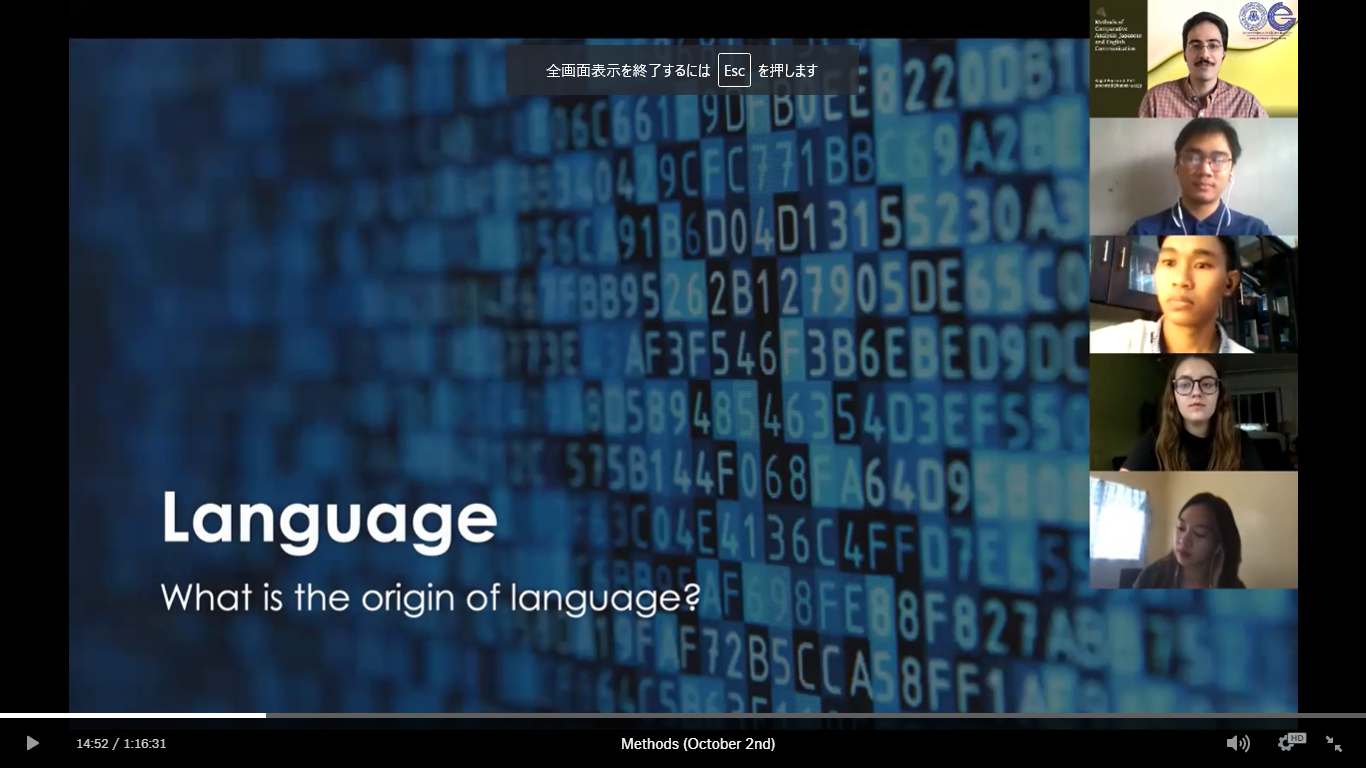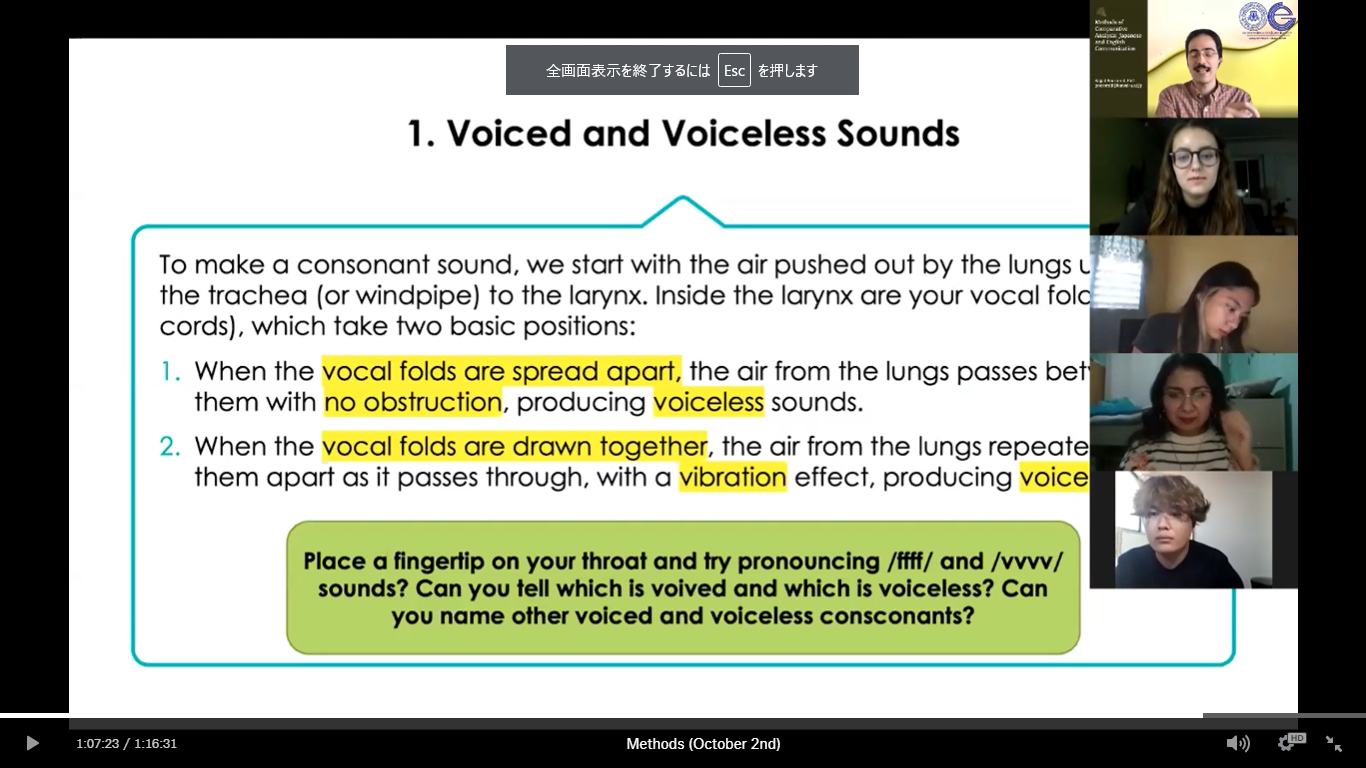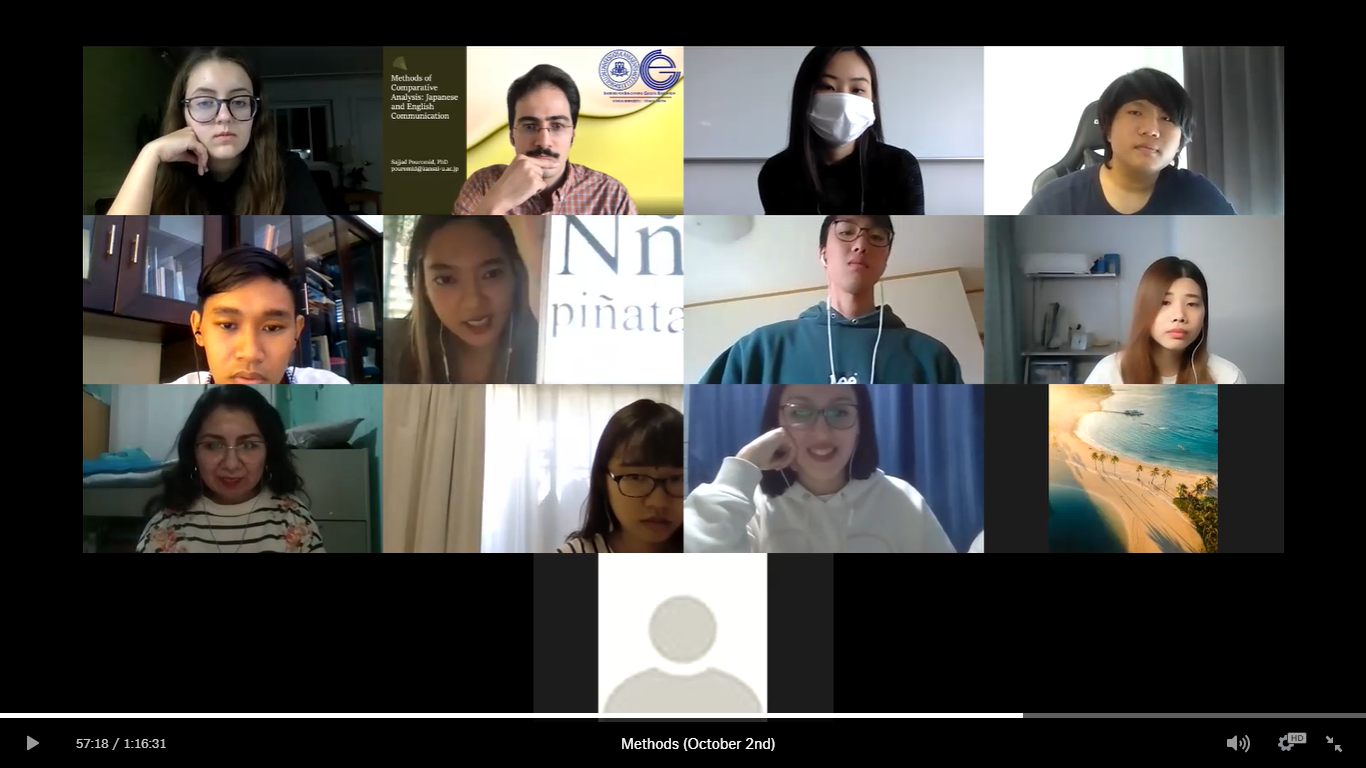2020.10.02Advanced Programs
Launch of KU Engaged/Exchange Online Learning
We are pleased to announce that Kansai University Engaged/Exchange Online Learning (KU-EOL) has been launched for the fall semester on October 1st. This program allows students outside of Japan to join KU students in their classes online and they will study together till the middle of December 2020. Now that most international mobility programs have been canceled due to COVID-19, we are hoping that this will provide students to experience learning with Japanese students as well as for the KU students to study and interact with international students. The offered courses are listed down below:
・Contemporary Gender Studies
・Research Methods for Social Sciences
・Critical Thinking for Social and Global Issues
・Japan in International Affairs
・Japanese Popular Culture (Postwar Japanese Culture)
・Methods of Comparative Analysis (ENG and JPN Communication)
・Information and Communication Technologies
・Communication in Japanese Society (Business Japanese)
・Communication in Japanese Society (JPN Corporate Culture)
・Practical Business Communication in Japanese II
For more details about the program, please take a look at the flyer: https://kutc-my.sharepoint.com/:b:/g/personal/x208005_kansai-u_ac_jp/EbhXs7FhE5xBg_Be_6NcWWsB_o5tvrf2trhAFTdYMMbaXQ?e=6EtnyL
On October 2nd, Kansai University students in Methods of Comparative Analysis (English and Japanese Communication) class led by Dr. Sajjad Pouromid (Specially Appointed Assistant Professor at Kansai University) met their international classmates virtually for the first time.
The class is one of the courses offered in the KU-EOL Program. In this course, students will be analyzing language as a whole to understand it in more depth while also looking into similarities and differences between English and Japanese.
In this session, after a brief course introduction and self introduction from each student, Dr. Pouromid gave a lecture on the origin of language by presenting various hypotheses explaining the possible sources of language, and introducing a number of key concepts in phonetics and phonology. The lecture was followed by discussions where the students shared their thoughts and opinions on the topic in small groups while providing examples from the languages they spoke. The class will meet again online every Friday this semester and the students will study other linguistic topics including syntax, semantics, morphology, and discourse. Meanwhile, they will be working on their assignments on ImmerseU (https://www.kansai-u.ac.jp/Kokusai/IIGE/immerseU/) which is the LMS they will be using for this course.


